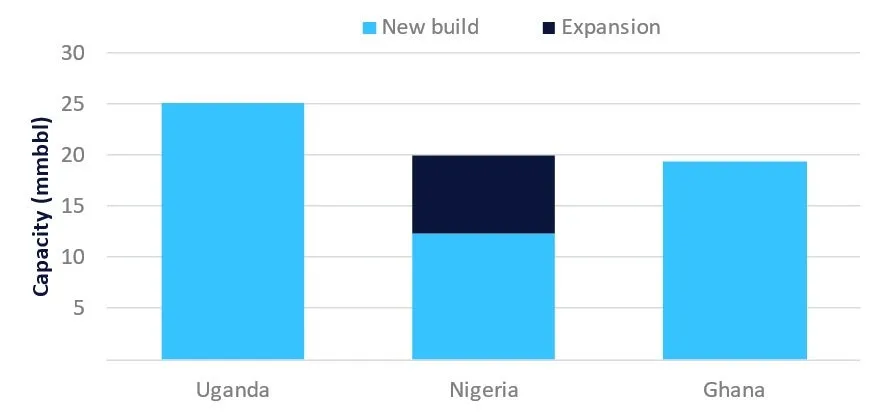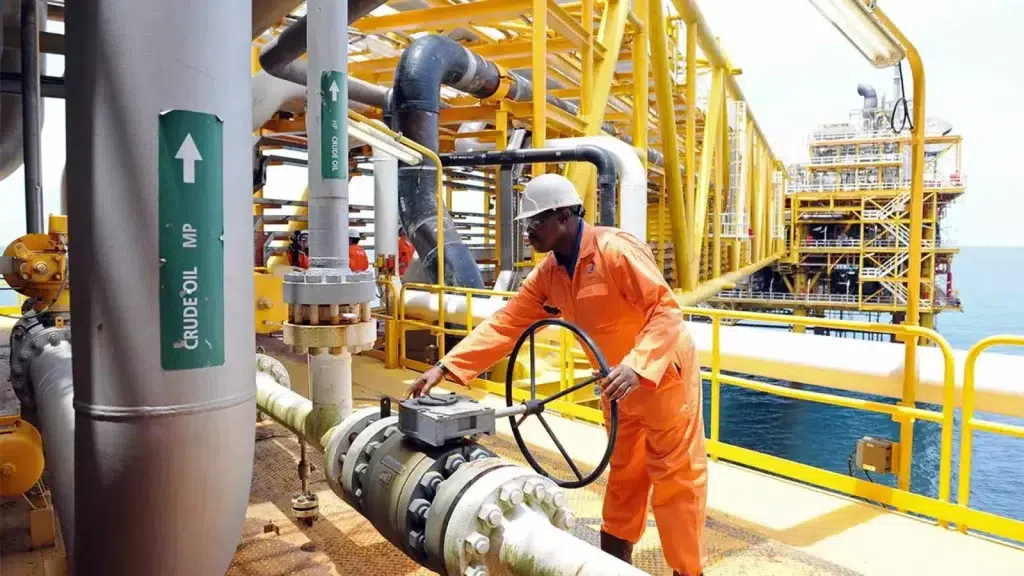Africa is entering a new phase of energy infrastructure development, with significant investments being channelled into liquids storage capacity. By 2030, the continent is projected to account for around 12% of global storage capacity additions, a shift driven by rapid population growth, expanding industrialisation, and rising consumption of refined petroleum products and chemicals. Beyond domestic needs, these investments are also aimed at strengthening energy security, stabilising supply chains, and enhancing export capacity.
Uganda is set to take the lead in this transformation with the development of the Buloba terminal, a facility designed to store refined petroleum products with a planned capacity of 25.2 million barrels. Strategically located in Wakiso district, the terminal will secure a steady supply for the Kampala market and surrounding consumption hubs. The Uganda National Oil Company (UNOC) is spearheading the project, holding a majority equity stake of 51%. Once operational, the terminal will be a cornerstone of Uganda’s energy strategy and a catalyst for broader economic development.
Following closely behind, Nigeria is also expected to register significant storage additions to meet both domestic and export requirements. Expansion at the Lagos terminal, operated and fully owned by Dangote Oil Refinery, is projected to add 6.3 million barrels of capacity by 2030. Other key projects, including Eghudu, Koko I, and Kula, will further strengthen Nigeria’s position as a regional energy hub, ensuring a more resilient supply chain for petroleum products.

Ghana ranks third in terms of capacity expansion, with an estimated 19.4 million barrels of new storage expected by 2030. The most notable project is the Jomoro terminal, a central element of Ghana’s ambitious Petroleum Hub Project. Set to begin operations in 2028, the terminal will form part of an integrated petroleum and petrochemical complex designed to drive economic transformation and position Ghana as a competitive energy player in West Africa. Operated and wholly owned by Petroleum Hub Development, the facility underscores the country’s commitment to long-term energy sustainability.
The growing momentum in Africa’s liquids storage sector reflects a broader recognition of energy’s role in powering industrialisation and economic growth. By building modern storage facilities, African nations are not only securing domestic supply but also preparing to play a greater role in global energy markets. Uganda, Nigeria, and Ghana stand at the forefront of this transformation, each positioning themselves as leaders in the continent’s energy infrastructure journey.















